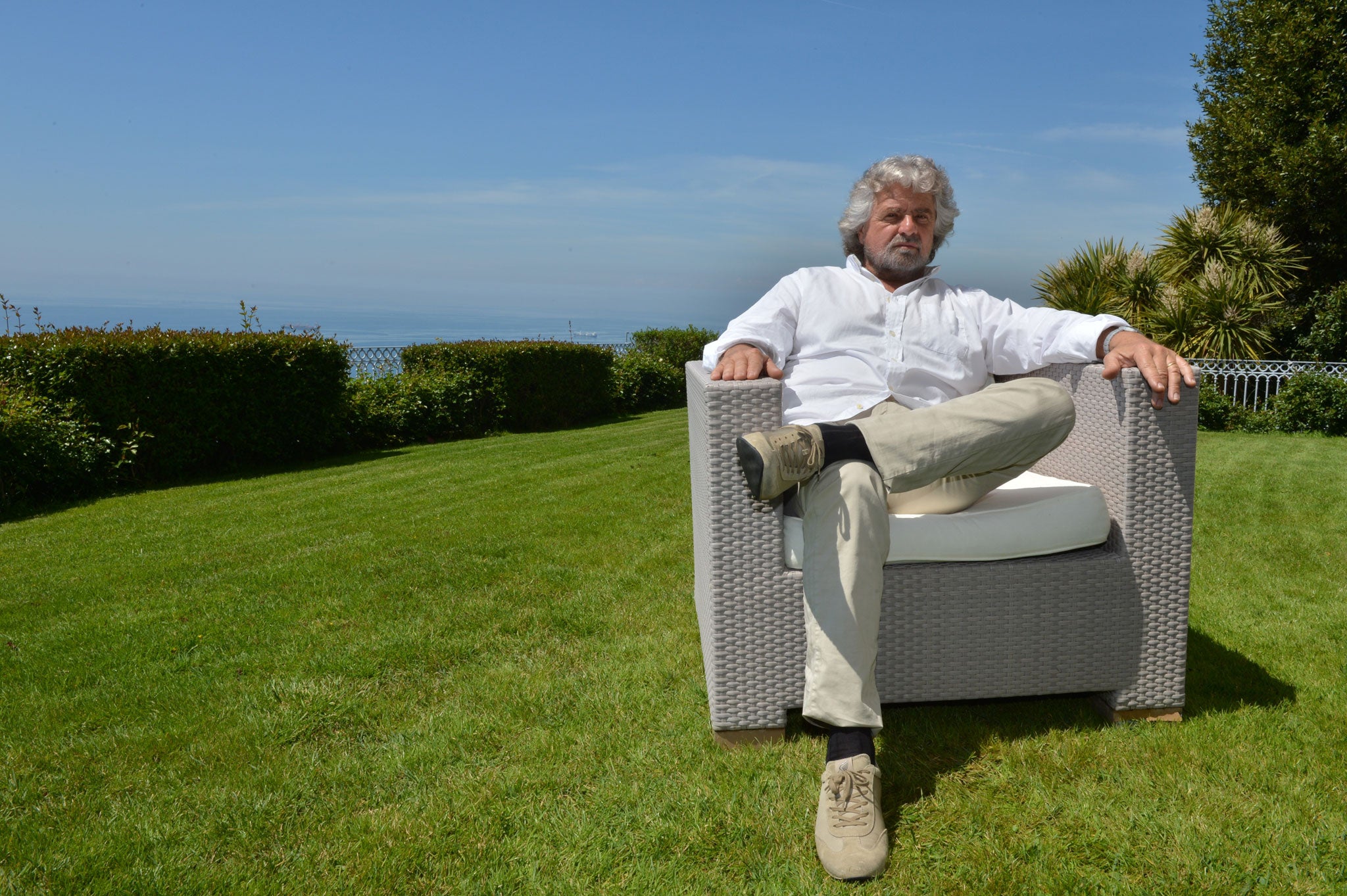After Berlusconi, Beppe should be just what Italy needs. And yet...
Honest, inexperienced politicians may not be the answer for a nation on the edge of economic disaster. Plus, the rise of Japan's concrete jungle


Beppe Grillo is a revolutionary. Of that, there can be no doubt. The charismatic comedian whose “Five-Star Movement” goes into the Italian general election this weekend in third or possibly second place – polls are banned in the last two weeks so we can’t be sure – has rewritten all the rules.
He has practically done away with the stage – at rallies like the vast one today in central Rome, he rambles through the crowd on the same level as his supporters. He has turned his back on the fripperies of politics: Italian politicians cruise around in state-funded, outsize blue Lancias and hop from city to city by jet or high-speed train, but throughout his “Tsunami Tour” of the country, Grillo has slogged from town to town in the campervan in which he also sleeps.
Grillo has made the conventional mass media irrelevant: decades back, he was barred from television after lampooning a massively corrupt Socialist prime minister, but he has flourished away from the tube, and refuses to be interviewed by Italian reporters, relying on his popular blog to spread his views. He could claim tens of millions of euros from the state to fund his campaign but claims nothing: recently, his movement’s candidates received the biggest share of the vote in regional elections in Sicily, of all places, after spending a mere €25,000.
Transcending the deep-rooted tribal divisions of Italian politics, he draws support from the right as well as from the left. He is challenging the shibboleths of Italian politics, questioning Italy’s membership of the EU and demanding a referendum on the euro. In a nation that is going back to Berlusconi like a dog to its vomit, he represents something starkly, shockingly new.
There is little to spread alarm in his manifesto, which focuses on issues of concern to every family: transport, public ownership of water, economic development, free internet for all, the green revolution. There is little here of the ugly racism that permeates the Northern League. The people Grillo threatens to go after with baseball bats are not illegal immigrants but criminal politicians.
So why is it that, up close, there is something horribly familiar about this man? Is it mere Anglo-Saxon hypersensitivity to find something repellently atavistic in his screaming, ranting, arm-flailing persona, this permanent boiling over of righteous wrath? To be sure, Italian voters have plenty to be angry about. The permissiveness of Berlusconi opened the floodgates of corruption, and new scandals break every week.
Mario Monti, the technocratic PM, may have stopped the rot in some respects but has done nothing to make the economy grow. And by teaming up for this election with what remains of the Christian Democrats, he has revived unhappy memories of the long years of graft and corruption which that party came to stand for.
If Grillo’s Movement does as well as the polls suggest, enough of his candidates could win election – he himself is not running – to put huge pressure on the biggest grouping, most likely to be Pier Luigi Bersani’s centre-left Democratic Party. These will be inexperienced, first-time MPs, as honest as the day is long, but probably not the sort of people to depend on if and when the nation finds itself again on the cusp of economic disaster.
But that is not the most serious danger that Grillo poses. His programme may be laudable, even if his proposal for having the successor to President Giorgio Napolitano – a figure of enormous importance in volatile times like these – chosen by a universal on-line vote risks worse damage to Italy than anything even Berlusconi could inflict.
No, the real danger is the psychological allure of the man; the seductive charm of the idea of throwing everything out – everything! – and starting afresh. The old continent has been down that road before.
Is there any of Japan left to concrete?
Japan, though it is still one of the world’s Big Three economies, has been treading water for so long that this was beginning to seem its natural condition. It has lived in a becalmed state ever since the property price bubble burst more than 20 years ago, with near-zero inflation and near-zero interest rates. In the past few years, it has provided a sombre sort of role model for us in Europe.
But suddenly Japan seems to be waking up. Prime Minister Shinzo Abe wants to bounce the economy back into shape with a huge programme of public works, to bring back modest inflation, to shake the nation roughly awake. But is this progress or merely repetition? During the boom years – when Mr Abe’s father Shintaro was the country’s foreign minister – the big construction companies that were the Liberal Democrats’ biggest backers carpeted the country in concrete from one end to the other in pursuit of growth.
Donald Richie, the great American observer of Japan who died this week, said that when he arrived after the war it was the most beautiful country in the world; it became just about the ugliest. What more can they do to it?
Join our commenting forum
Join thought-provoking conversations, follow other Independent readers and see their replies
Comments
Bookmark popover
Removed from bookmarks